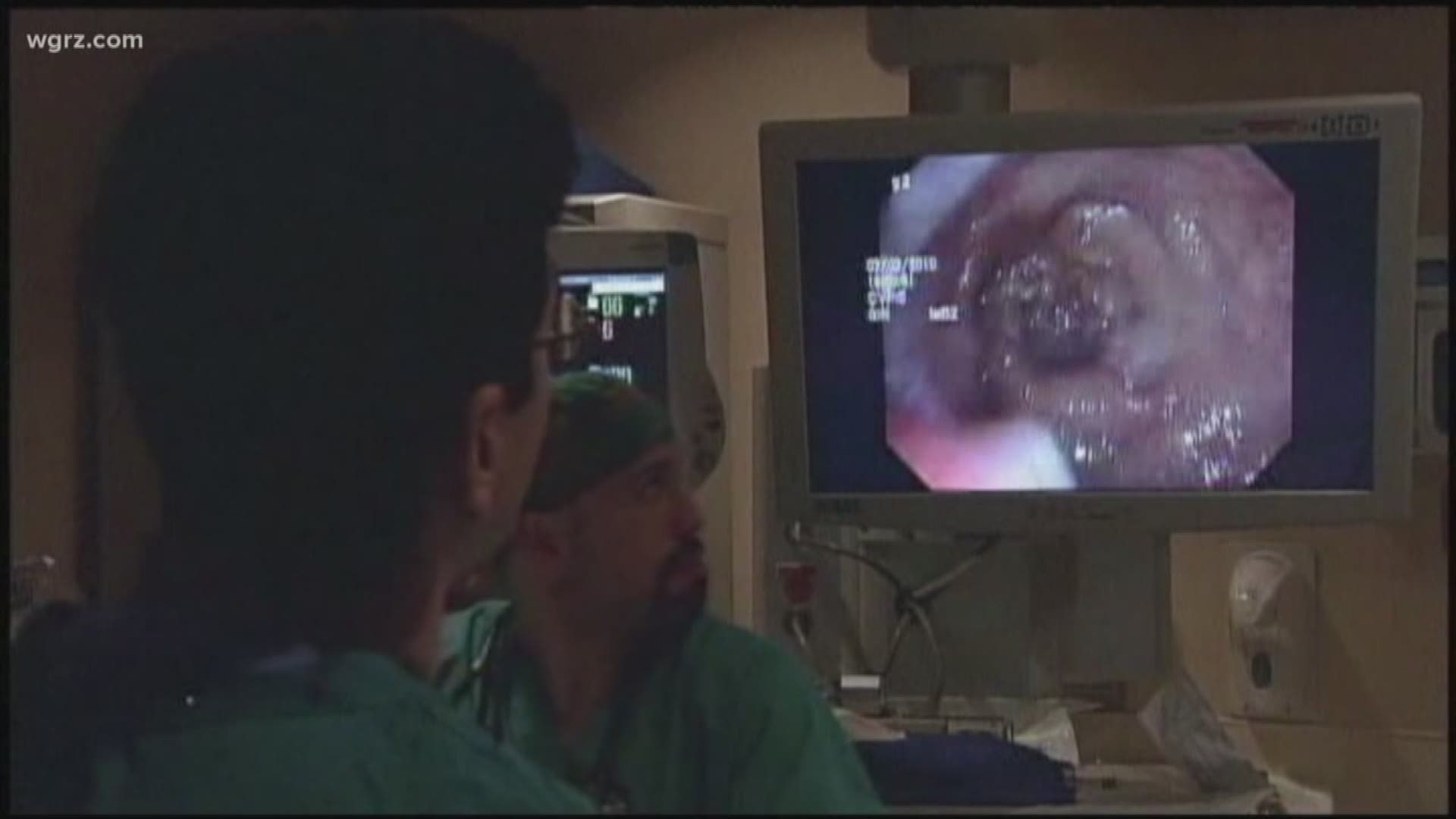BUFFALO, N.Y. — This weekend hundreds of people will race around Delaware Park for the annual Undy Run which raises money and awareness for colorectal cancer.
There is both good and bad news when it comes to the disease.
According to a study by the American Cancer Society, the overall number of colorectal cancer deaths are down, and cancer rates are decreasing for those over 50, but there has been a sharp rise in colorectal cancer rates in young people.
Early research is being done to try and determine why there has been an increase in the number of colorectal cancer cases in people in their 20s and 30s.
Doctors think obesity, inactivity, and a Western diet may be some of the factors.
According to the Colorectal Cancer Alliance, one in seven cases of the disease occurs in people under age 50, and 75 percent of young onset cases hit those who are between 40 and 45.
Different Screening Methods
A colonoscopy is still considered the gold standard for colorectal cancer detection, but it's not the only test.
A fecal occult blood test can detect microscopic blood levels which could come from a polyp, hemorrhoid, infection, benign inflammatory condition or cancerous lesion.
Virtual colonoscopies use special x-ray equipment to view the inside of the colon.
There are several other options. Click here for more information on the different ways to detect colorectal cancer.
When Should I Get Screened?
Experts recommend getting a colonoscopy at age 50, if you have an average risk of developing colon cancer. The recommended age is 45 for African American men and women.
If you have a family history, the recommended age for a colonoscopy is age 40 or 10 years earlier than a first degree relative's diagnosis. For example, if a parent was diagnosed at age 40, a child should get screened at age 30.
If you have symptoms, check with your doctor. He or she may recommend getting checked sooner.
What symptoms should I look out for?
Some symptoms include change in bowel habits, such as diarrhea, constipation, rectal bleeding, blood in the stool, or unexplained weight loss.
Some people may not experience any symptoms until the cancer is more advanced. Sometimes symptoms are confused for other digestive issues.
Help for the Uninsured/Underinsured
The Cancer Services Program is a New York State initiative that provides free breast, cervical, and colon cancer screenings and education to eligible, uninsured, and underinsured men and women. Click for more information.

